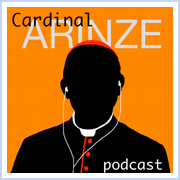Reading: 3 John 5-8Praise for Gaius
----------------
[3] For I great rejoiced when some of the brethren arrived and testified to the truth of your life, as indeed you do follow the truth. [4] No greater joy can I have than this, to hear that my children follow the truth.
[5] Beloved, it is a loyal thing you do when you render any service to the brethren, especially to strangers, [6] who have testified to your love before the church. You will do well to send them on their journey as befits God's service. [7] For they have set out for his sake and have accepted nothing from the heathen. [8] So we ought to support such men, that we may be fellow workers in the truth.
************
Commentary:
With great simplicity St John says why his paternal heart feels so happy--because Gaius, as his charity shows (vv. 5-8), is such a good-living man (vv. 3-4).
He uses a typically Semitic turn of phrase to describe Gaius' upright life: 'you follow the truth." In the Old Testament the Patriarchs are praised for "walking with God" (cf., e.g. Gen 5:22, 24; 6:9). This image of the wayfarer took on great importance after the Exodus: the people of Israel by divine will made their way as pilgrims to the Promised Land and in the course of that journey the great event of the Covenant took place (cf. Ex 19:24). "Walking with God" means the same as "fulfilling what the Covenant requires", that is, the commandments (cf. 2 Jn 4). With the coming of Christ, who said of himself, "I am the way, and the truth, and the life" (Jn 14:6), it has become quite clear that walking in the truth means being totally attached to the person of Christ: "live in him" (Col 2:6), "walk in the light" (1 Jn 1:7), "follow the truth" (2 Jn 4), all mean the same sort of thing--living in communion with Christ, being a genuine Christian in everything one thinks and does.
Gaius' charity expressed itself in welcoming and helping the preachers sent by John (in the early times of the Church itinerant missionaries helped to keep alive the faith and promote solidarity among the scattered churches). They had set out "for his sake", that is, Christ's (v. 7; cf. Acts 5:41; Phil 2:9-10; Jas 2:7). By helping (even materially), Christians become "fellow workers in the truth" (v. 8) and merit the reward promised by our Lord: "He who receives you receives me, and he who receives me receives him who sent me"(Mt 10: 40).
"Fellow workers in the truth": the Second Vatican Council applies these words to lay people when explaining how their apostolate and the ministry proper to pastors complement each other. And it goes on: "Lay people have countless opportunities for exercising the apostolate of evangelization and sanctification. The very witness of a Christian life, and good works done in a supernatural spirit, are effective in drawing men to the faith and to God; and that is what the Lord has said: 'Let your light shine so brightly before men, that they may see your good works and give glory to your Father who is in heaven.' (Mt 5:16).
"This witness of life, however, is not the sole element in the apostolate; the true apostle is on the lookout for opportunities to announce Christ by word, either to unbelievers to draw them towards the faith, or to the faithful to instruct them, strengthen them and incite them to a more fervent life" ("Apostolicam Actuositatem", 6).
******************************
Gospel: Luke 18:1-8Persevering Prayer. Parable of the Unjust Judge
------------------------------------------------
[1] And He (Jesus) told them a parable, to the effect that they ought always to pray and not lose heart. [2] He said, "In a certain city there was a judge who neither feared God nor regarded man; [3] and there was a widow in that city who kept coming to him saying, `Vindicate me against my adversary.' [4] For a while he refused; but afterward he said to himself, `Though I neither fear God nor regard man, [5] yet because this widow bothers me, I will vindicate her, or she will wear me out by her continual coming.' [6] And the Lord said, "hear what the unrighteous judge says. [7] And will not God vindicate His elect, who cry to Him day and night? Will He delay long over them? [8] I tell you, He will vindicate them speedily. Nevertheless, when the Son of Man comes, will he find faith on earth?"
*********************
Commentary:
1-8. The parable of the unjust judge is a very eloquent lesson about the effectiveness of persevering, confident prayer. It also forms a conclusion to Jesus' teaching about watchfulness, contained in the previous verses (17:23-26). Comparing God with a person like this makes the point even clearer: if even an unjust judge ends up giving justice to the man who keeps on pleading his case, how much more will God, who is infinitely just, and who is our Father, listen to the persevering prayer of His children. God, in other words, gives justice to His elect if they persist in seeking His help.
1. "They ought always to pray and not lose heart." Why must we pray?
"1. WE MUST PRAY FIRST AND FOREMOST BECAUSE WE ARE BELIEVERS.
"Prayer is in fact the recognition of our limitation and our dependence: we come from God, we belong to God and we return to God! We cannot, therefore, but abandon ourselves to Him, our Creator and Lord, with full and complete confidence [...].
"Prayer, therefore, is first of all an act of intelligence, a feeling of humility and gratitude, an attitude of trust and abandonment to Him who gave us life out of love.
"Prayer is a mysterious but real dialogue with God, a dialogue of confidence and love.
"2. WE, HOWEVER, ARE CHRISTIANS, AND THEREFORE WE MUST PRAY AS CHRISTIANS.
"For the Christian, in fact, prayer acquires a particular characteristic, which completely changes its innermost nature and innermost value. The Christian is a disciple of Jesus; he is one who really believes that Jesus is the Word Incarnate, the Son of God who came among us on this earth.
"As a man, the life of Jesus was a continual prayer, a continual act of worship and love of the Father and since the maximum expression of prayer is sacrifice, the summit of Jesus' prayer is the Sacrifice of the Cross, anticipated by the Eucharist at the Last Supper and handed down by means of the Holy Mass throughout the centuries.
"Therefore, the Christian knows that his prayer is that of Jesus; every prayer of his starts from Jesus; it is He who prays in us, with us, for us. All those who believe in God, pray; but the Christian prays in Jesus Christ: Christ is our prayer!
"3. FINALLY, WE MUST ALSO PRAY BECAUSE WE ARE FRAIL AND GUILTY.
"It must be humbly and realistically recognized that we are poor creatures, confused in ideas, tempted by evil, frail and weak, in continual need of inner strength and consolation. Prayer gives the strength for great ideas, to maintain faith, charity, purity and generosity. Prayer gives the courage to emerge from indifference and guilt, if unfortunately one has yielded to temptation and weakness. Prayer gives light to see and consider the events of one's own life and of history in the salvific perspective of God and eternity. Therefore, do not stop praying! Let not a day pass without your having prayed a little! Prayer is a duty, but it is also a great joy, because it is a dialogue with God through Jesus Christ!
Every Sunday, Holy Mass: if it is possible for you, sometimes during the week. Every day, morning and evening prayers, and at the most suitable moments!" (John Paul II, "Audience with Young People", 14 March 1979).
8. Jesus combines His teaching about perseverance in prayer with a serious warning about the need to remain firm in the faith: faith and prayer go hand in hand. St. Augustine comments, "In order to pray, let us believe; and for our faith not to weaken, let us pray. Faith causes prayer to grow, and when prayer grows our faith is strengthened" ("Sermon", 115).
Our Lord has promised His Church that it will remain true to its mission until the end of time (cf. Matthew 28:20); the Church, therefore, cannot go off the path of the true faith. But not everyone will remain faithful: some will turn their backs on the faith of their own accord. This is the mystery which St. Paul describes as "the rebellion" (2 Thessalonians 2:3) and which Jesus Christ announces on other occasions (cf. Matthew 24:12-13). In this way our Lord warns us, to help us stay watchful and persevere in the faith and in prayer even though people around us fall away.
*********************
Source: "The Navarre Bible: Text and Commentaries". Biblical text taken from the Revised Standard Version and New Vulgate. Commentaries made by members of the Faculty of Theology of the University of Navarre, Spain. Published by Four Courts Press, Kill Lane, Blackrock, Co. Dublin, Ireland.
Reprinted with permission from Four Courts Press and Scepter Publishers, the U.S. publisher.









